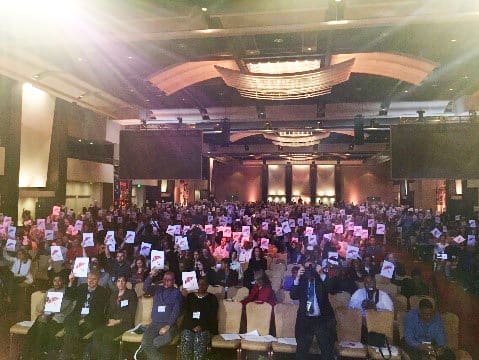On Friday, December 16, Congress sent President Obama the final fiscal year 2012 appropriations bill, which reinstates a prohibition on using federal funding to support syringe exchanges. We implore President Obama to condemn the federal funding ban in the strongest language possible and begin working immediately for its repeal.
“Reinstating the ban on federal syringe exchange funding is a terrible setback and a clear rejection of science and human rights,” said David Ernesto Munar, president/CEO of AIDS Foundation of Chicago. “The debate about needle exchanges was settled in 2009. Congress and the President are reversing a major public health gain at a time in the AIDS epidemic when we cannot afford to take steps backward.”
The federal ban on funding for syringe exchanges was enacted in the 1980s, and was repealed in 2009 by Congress and President Obama. Nine states and one city (Chicago) applied to the federal government to use $2.7 million federal funding for syringe exchanges, according to the National Association of State and Territorial AIDS Directors. Advocates hailed the lifting of the ban as a victory for science?based HIV prevention services.
“We are dismayed that this year Congress threw in the towel when it comes to HIV prevention. They beat back provisions restricting abortion, workers’ rights and pollution enforcement,” Munar said. “Why aren’t people at risk of HIV just as important?”
By reinstating the federal funding ban, Congress is ignoring irrefutable scientific evidence that syringe exchanges reduce HIV and hepatitis transmission, increase participation in substance abuse treatment, and, in fact, do not encourage drug use.
Progressive sterile syringe exchange policies in Illinois have reduced by two?thirds HIV cases among injection drug users since 2001, saving an estimated $200 million in lifetime medical costs.
In July 2010, President Obama released the National HIV/AIDS Strategy, which calls for a 25 percent reduction in new HIV cases by 2015. The strategy lists syringe exchanges as one several “scientifically proven biomedical and behavioral approaches that reduce the probability of HIV transmission.”
We are committed to working anew to repeal the federal ban on funding for syringe exchanges. We call on our state and national legislators to do the same.



